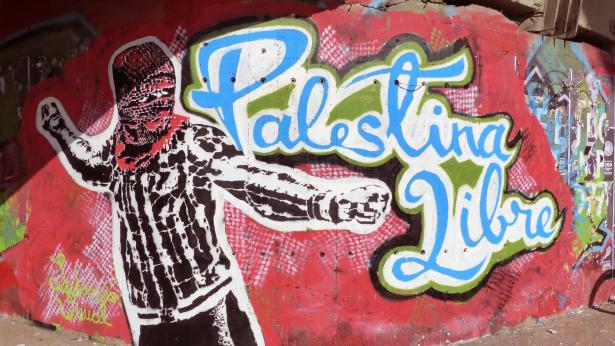One of the strongest condemnations of Israel’s ongoing war on Gaza is coming from Latin America.
Colombia’s president, Gustavo Petro, announced on August 14 that his country would officially cease all coal exports to Israel. Petro said the decision stems from Israel’s use of Colombian coal for the ongoing genocide in Gaza, which has left more than 40,000 people dead.
Colombia’s mining industry condemned the announcement, citing the embargo’s potential economic impacts on the country. In the first eight months of 2024, Colombian coal exports to Israel were worth $320 million. But this is a small fraction of the total value of coal exports from Colombia: $9 billion in 2023.
Analysts in Colombia are unsurprised at Petro’s announcement.
“It is very consistent his position on the issue since [the war] began,” Carolina Cepeda Másmela, a Colombian political analyst and professor of international relations at the Colombian Javeriana University, tells The Progressive.
Colombia’s progressive government has opposed Israel’s concentrated assault on Gaza since it began in October 2023. At the end of October, Petro recalled the Colombian ambassador to Israel, posting on X, “If Israel does not stop the massacre of the Palestinian people, we cannot be there.”
In February 2024, following the massacre of Palestinians in Gaza seeking food aid, Colombia blocked the exportation of military weapons to Israel. On May 1, Petro announced his administration was severing direct diplomatic relations with Israel over the war on Gaza, calling Prime Minister Benjamin Netanyahu “genocidal.”
But, Cepeda Másmela points out, Colombia maintains other economic and diplomatic relations with Israel. An Israeli diplomatic official remains in Colombia, while Colombia has upheld its free trade agreement with Israel, which went into effect in 2020.
Colombia is not the only South American country that has condemned Israel’s war on Gaza and the killing of civilians by Israeli forces. Neighboring countries, including Chile, Bolivia, and Brazil, have withdrawn their diplomats in protest of the war on Gaza and the genocide against Palestinians.
In May 2024, Brazilian president Luiz Inacio Lula da Silva announced that he was recalling Brazil’s ambassador to Israel. Israel has since declared Lula a persona non grata, meaning he is unwelcome in the country.
The defense of Palestinians in Latin America in part stems from the large Palestinian diaspora in the region. The massive anti-imperialist solidarity movements in developing countries have also contributed to these rejections of the genocide.
“One can perceive [the position of Latin America] as neutral, because Latin American countries recognize both states,” Cepeda Másmela explains. “But it is not a neutral position. They are taking sides because in this particular case there is no neutral position. [For the most part] the region has chosen to recognize Palestine due to a coherence with its own history, the colonial past.”
The complex relationships between Israel and Latin American nations go back decades. Israel maintains free trade agreements with not only Colombia, but also Mexico, Panama, and the Mercosur trade bloc, which is made up of Argentina, Bolivia, Brazil, Paraguay, and Uruguay.
Israel’s primary exports include military weapons and ammunition. The country exported $381 million of military equipment to Latin America in 2022. Israel has also become a major exporter of surveillance software, most prominently the infamous Pegasus system.
These Israeli weapons have often been used to support authoritarian regimes and repress protests.
One of the darkest examples of Israeli weapons contributing to major human rights violations comes from Guatemala. During the country’s internal armed conflict in the twentieth century, which left more than 200,000 people dead and 45,000 people missing, Israeli weapons and ammunition were used by the Guatemalan military to decimate hundreds of Indigenous communities as part of scorched earth counter insurgency operations against leftist guerrillas.
Most recently, authoritarian-leaning regimes in Central America have used surveillance systems exported by Israel to spy on journalists and academics. Pegasus technology was used by Nayib Bukele’s administration in El Salvador to spy on critics and journalists from the Salvadoran media outlet El Faro.
Elsewhere in Central America, Guatemala has deep pride for its relationship with Israel, as the small country held a seat on the United Nations commission that led to Israel’s formation in 1948. The president of Guatemala, Bernardo Arévalo, has not condemned the human rights violations Israel is committing in Gaza.
There are seventeen countries in Latin America that recognize the State of Palestine, including Guatemala, which has officially done so since 2013. Only Panama and Mexico do not recognize a Palestinian state, but Mexico does provide monetary aid to Palestine.
While Latin America is somewhat split between throwing their support behind Israel or Palestine, Colombia has chosen the side of ending the genocide against Palestinians and working towards peace.
Jeff Abbott is an independent journalist currently based out of Guatemala. “The Other Americans” is a column created by Abbott for The Progressive on human migration in North and Central America.
A voice for peace, social justice, and the common good! Since 1909, The Progressive magazine has aimed to amplify voices of dissent and voices under-represented in the mainstream, with a goal of championing grassroots progressive politics.


Spread the word